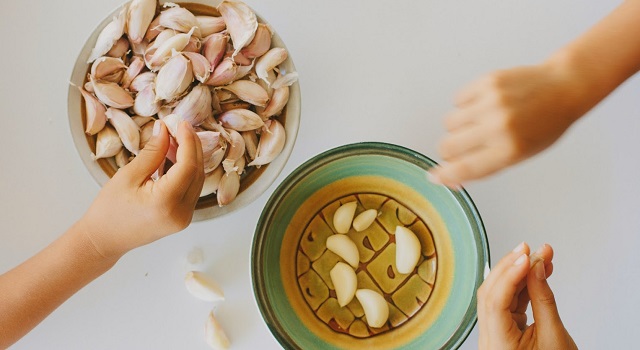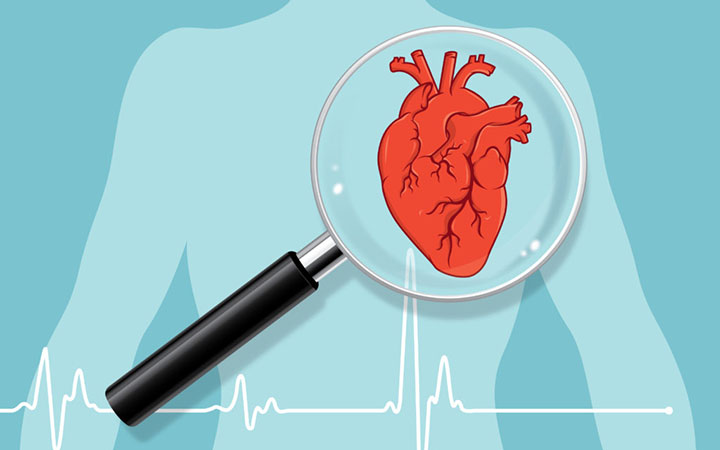It goes without saying that the heart is one of the most important organs in the entire body. Nobody can live a normal life without a perfectly working heart and even slight issues can quickly become troublesome if they are not properly monitored and taken care of. This means that if you have a heart condition, you will need to take extra care to change your lifestyle so that you can live a healthy and safe life. For example, cardiomyopathy is a disease where you might need to make some dietary changes. Cardiomyopathy makes it more difficult for your heart to pump blood to the rest of the body. In order to remedy this as best as you can, you will need to put more focus on fruits and vegetables and minimize foods that have high sodium.
Food & Nutrition Diet (Meal Plan) for Cardiomyopathy
#1 Recommended Breakfast Diet for Cardiomyopathy

There are many types of cereals that boast about how “heart-healthy” they are. Depending on the brand of the cereal, this claim is one that you will want to pay attention to. Reputable brands of these heart-healthy cereals have whole grains and low sugar, both of which are factors that should go into your meal prep. Other foods that you might want to look at are oatmeal and granola. To add some flavor to these meals, you might want to consider adding strawberries, raspberries, or cherries to your breakfast. If you prefer dried fruits, these work well as long as they do not have any added sugar in them.
#2 Recommended Lunch Diet for Cardiomyopathy

After breakfast, you might be in the mood for something that has a little bit more substance to it. Thankfully, there are several foods that you can choose from. For the main portion of your dish, you are going to want to look for foods that are low in both saturated and trans fats. This means that lean meats, poultry without the skin, fish that isn’t fried, and beans are all excellent main dishes for your lunch. For your side dish, you might want to look at more fruits and vegetables. The best possible side in this case would be a salad or a fruit salad as this will give you a variety of fruits and vegetables to eat with your entree.
#3 Recommended Dinner Diet for Cardiomyopathy

The biggest thing that you will need to pay attention to for dinners is the amount of sodium in the main dish. Most meats have a fair amount of sodium in them, meaning that you will have to do a bit of extra searching to find a dish that has exactly what you want without being unhealthy for your heart. You should continue looking at lean meats and staying away from red meats. Chicken, fish, and beans are all perfect solutions as long as the skin of these meats isn’t drenched in salty sauces. Another salad with your dinner is a great way to add more vegetables and fruits to your meal. You can also consider steaming or microwaving frozen vegetables and adding them as a side. Garlic is not only a good vegetable for the heart but it will add a punch of flavor to just about any meal, meaning that you can leave the salt off the dinner table.
#4 Recommended Snacks Diet for Cardiomyopathy

Most people do not think of fruits or vegetables as being snacks but there are definitely some vegetables that work well. Raw veggie sticks with a light sauce, such as reduced-sodium ranch dressing, is a perfect snack that improves the health of your heart. Canned fruit is wonderful if you are on the go and do not want to stress out about rotting fruit. Frozen fruits are another option to consider, especially for swelteringly hot summer days.
#5 Recommended Drinks for Cardiomyopathy

Finding a drink that will help you with your cardiomyopathy is actually very easy. As long as you make sure that the drinks you are looking at have very little added sugar, just about any and every fruit or vegetable juice will be perfect. Not only will it taste better than just a plain glass of water but it will also give you the fruits and vegetables that your body needs to improve your heart’s health.
#6 Recommended Herbs for Cardiomyopathy

There are a few herbs that have been shown in studies to help with the symptoms and severity of cardiomyopathy. For example, Arjuna, sometimes called Terminalia, comes from a tree and has been shown many times to help with cardiomyopathy. Of course, you will always want to consult a doctor before taking any new supplement whether it is herbal or medicinal. Garlic can also helpful in stabilizing high blood pressure.
#7 Recommended Fruits for Cardiomyopathy

Rather than a specific type of fruit for cardiomyopathy, you should generally increase your entire intake of fruit. Adding more fruit to your breakfast, lunch, dinner, and snacks will improve your heart health significantly. There are many places that suggest that you should be eating about five cups of fruit per day, every day. This means that you are going to want to look at which fruits you enjoy the most and you will want to stock up on them when they come in season.
#8 Recommended Vitamin/s for Cardiomyopathy

There isn’t one magical vitamin that is going to banish the symptoms of cardiomyopathy from your body. Instead, you need to focus on getting all the vitamins that your body needs. By making sure that no part of your body has to compensate for a vitamin deficiency, there’s a very good chance that your heart will be in better health overall. For someone suffering from cardiomyopathy, making sure that your heart doesn’t have to work harder than normal is the best thing that you can do for yourself.
#9 Recommended Mineral/s for Cardiomyopathy

Similarly, there also isn’t one mineral that is going to completely cure you of cardiomyopathy. What you should look at doing is getting the daily recommended amount of minerals that your body needs or what your doctor otherwise tells you. When you get all the vitamins that your body needs, you can rest assured knowing that your heart isn’t working twice as hard as it should be to make up for deficiencies. This is one of the keys to keeping your heart as healthy as possible.
#10 Discouraged Foods for Cardiomyopathy

There aren’t necessarily specific foods that you need to avoid but rather groups of foods that you should reduce or eliminate from your diet altogether. Foods that have high amounts of fat, both saturated or trans, should be minimal in your diet. The same goes for foods that have a high amount of sodium in them. You should be eating no more than 1500 milligrams of sodium in a day and optimally less than that. Fats and sodium can increase your blood pressure, which is something you will want to avoid when you have cardiomyopathy. You will also want to make sure that everything you ingest doesn’t have added sugars in it as this can mess with your heart health as well.
- READ MORE




